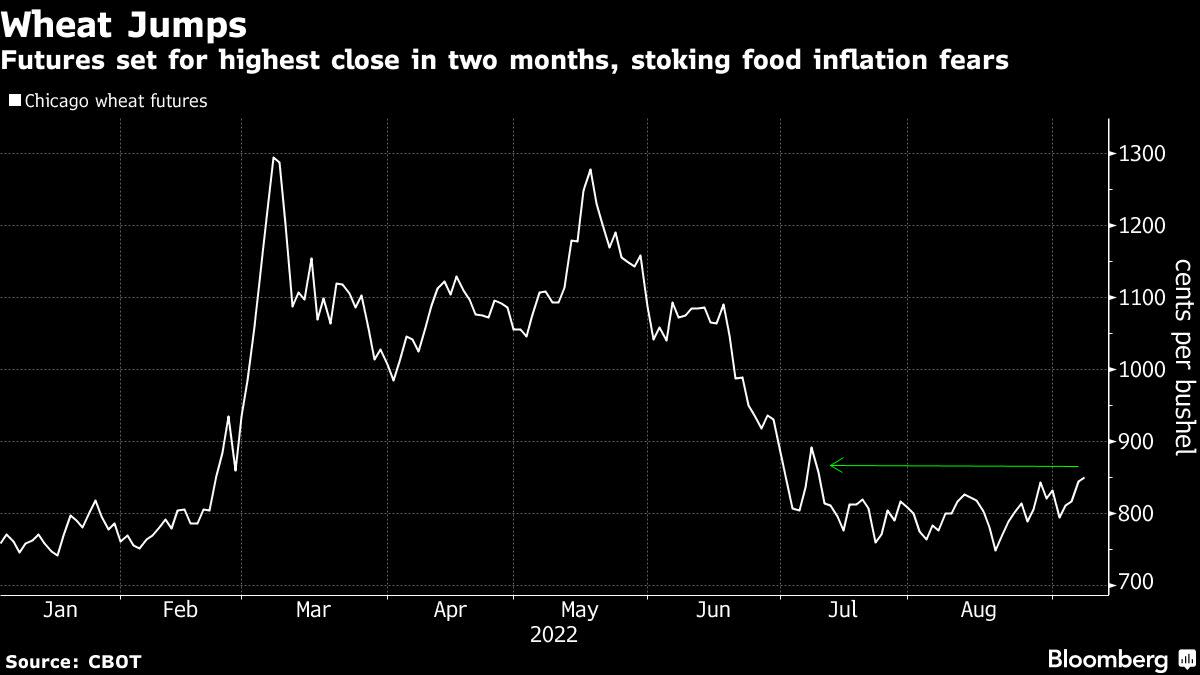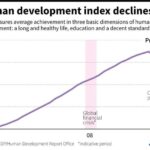
(Bloomberg) — Russian President Vladimir Putin’s criticism of the grain deal with Ukraine and the surge in wheat prices highlighted the fragility of the global crop trade, raising the specter of higher food prices to come.
Most Read from Bloomberg
The grain shipment corridor from Ukraine is not helping poorer countries, as the majority of supplies are going to Europe, Putin said on Wednesday. He added that it may be worth discussing restrictions on the routes with Turkish President Recep Tayyip Erdogan, putting the future of the deal in jeopardy.
The comments sparked a surge of almost 7% in benchmark Chicago wheat futures. The contract rose a further 0.5% as of 11:15 a.m. Singapore time on Thursday, poised for the highest close in two months.
The export deal, forged in July, was brokered by Turkey and the United Nations. It’s valid for an initial 120 days, and markets remain sensitive to any signals from politicians on its future. Ukraine is one of the world’s biggest crop shippers and the resumption of flows from its Black Sea ports has helped ease global grain costs, though much hinges on whether the pace holds.
“The wheat market is, naturally, sensitive to any suggestion the corridor might be closed or, as in this case, it will be narrowed,” said Tobin Gorey, an agricultural strategist at Commonwealth Bank of Australia.
With the initial deal set to come to an end in November, “Russia’s President is possibly preparing a premise to pooh‑pooh an extension,” he added.
So far, wheat harvests in the northern hemisphere and the uptick in grain flows from Ukraine have helped to ease global supply constraints. World food prices fell for a fifth month in August, offering some relief to consumers as they grapple with a deepening cost-of-living crisis.
More than 2 million tons of grain and other foodstuffs were shipped from Ukrainian ports since early August, according to data posted by the UN. That includes recent cargoes to Turkey, Spain, China, Italy and Somalia.
This week’s MLIV Pulse survey focuses on energy and commodities. It’s brief and anonymous. Please click here to share your views.
Most Read from Bloomberg Businessweek
©2022 Bloomberg L.P.




